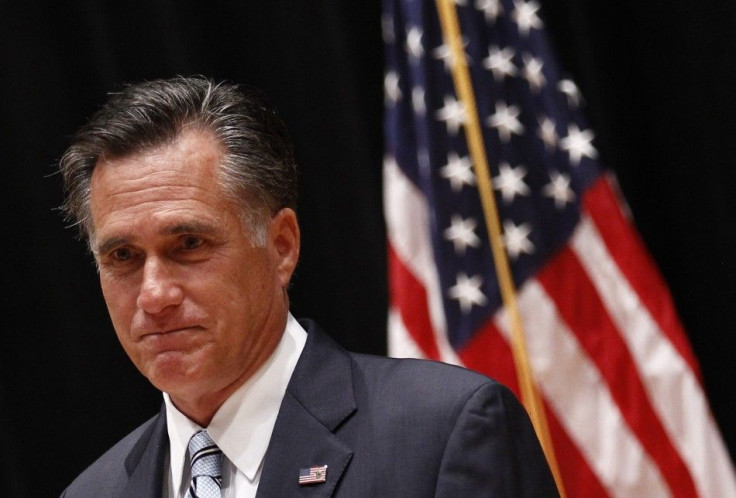Romney's '47 Percent' Stumble: Why It May Not Be A Big Deal

Mitt Romney's latest stumble, in which he tells an audience of donors that nearly half the country will automatically support President Obama because they are hopelessly dependent on government aid, is already dominating the news cycle. And the prognostications are dire.
Today, Mitt Romney lost the election, reads the headline on a piece by Bloomberg's Josh Barro. The general consensus is similar: this is a body blow for a campaign that is reportedly in disarray, its candidate trailing in the polls.
Everybody relax.
Remember the moment, four years ago, when then-Senator Obama was caught on tape caricaturing the denizens of post-industrial towns as people who cling to guns or religion or antipathy to people who aren't like them or anti-immigrant sentiment or anti-trade sentiment as a way to explain their frustrations? Remember how his poll numbers plummeted and his campaign collapsed?
That didn't happen, of course. The comments gave ammunition to Obama's opponents, because it confirmed their stereotype of him as a liberal elitist who was drastically out of touch with small-town America. But the overarching issues of the campaign took precedence over the sound bite.
Romney's gaffe is unquestionably an egregious one. And it plays perfectly into the image the Obama campaign, with constant assists from the Republican nominee's chronic foot-in-mouth disorder, is painting: that Romney is a candidate of the wealthy, so detached from ordinary Americans that he scoffs at the government programs that provided needed services, from health care to education to the Earned Income Tax Credit, to a vast segment of the population.
But is also affirms, however crudely, a central narrative that Romney -- and indeed the entire Republican party -- is trying to sell. That vision sets Obama's America, with a swollen government spending recklessly on unneeded programs, against an America of strivers whose greatest asset is an unencumbered free market.
I'm sure I could state it more clearly in a more effective way than I did in a setting like that, Romney said in a subsequent attempt at damage control Monday evening. But his comments focused on a question about direction for the country: Do you believe in a government-centered society that provides more and more benefits? Or do you believe in a free-enterprise society where people are able to pursue their dreams?
If that sounds a little Randian, dividing the country between the makers and the takers -- well, it is. But Romney has been espousing a similar message all along, and the Republican faithful are receptive to the idea that a large chunk of the country does not pay income taxes, or is hopelessly dependent on food stamps.
It's also important to note the gulf between what the media thinks is important and what moves the average American voter. This presidential campaign, at times, has felt like a ceaseless playing out of the poorly-worded-comment-to-outrage cycle. Mitt Romney insulted a local bakery's cookies! Joe Biden suggested to black voters that Romney would put them in chains!
Some of those stumbles find their way into political advertisements or even stump speeches, and the Obama campaign is likely to hammer Romney over his latest gaffe. But at this point, the portrait of Romney as a corporate raider indifferent to everyday Americans is firmly established.
That's not to say everyone believes it. But in an election still likely to be dominated by job numbers and the unemployment rate, it seems unlikely that one more cringe-worthy speech will swing the outcome.
© Copyright IBTimes 2024. All rights reserved.











